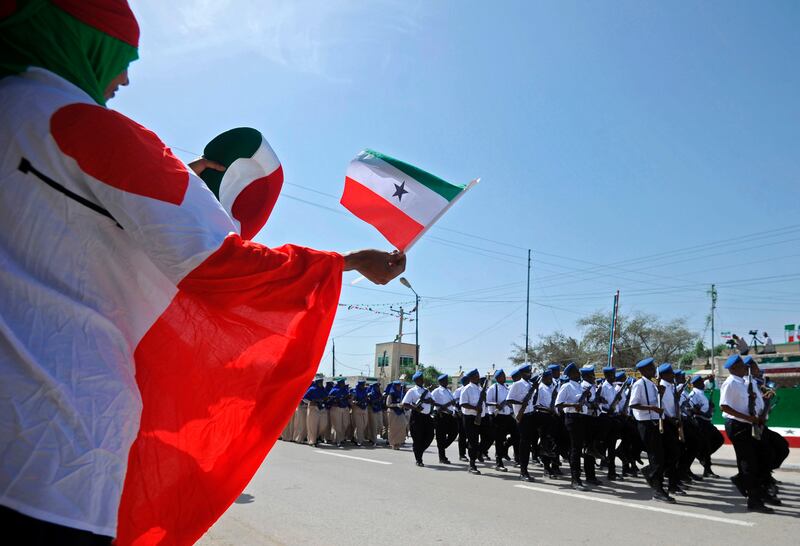The self-proclaimed state of Somaliland will vote for a new president on Monday, hoping to continue a series of democratic transitions of power that sets it apart from its troubled neighbour, Somalia.
The northern territory, which is more tribally homogenous and stable than the rest of Somalia, broke away in 1991 and has been striving to attain international recognition.
Three candidates are running for the state's top office, seasoned politicians Muse Bihi of the ruling Kulmiye party and opposition candidates Abdirahman Iro and Faysal Ali Warabe - who was defeated at the polls in 2010.
Elections are meant to be held every five years, however, drought and technical issues have meant a two-year delay.
Incumbent Ahmed Mohamoud Silaanyo is not seeking re-election.
_______________
Read more:
[ DP World says to build economic free zone in Somaliland ]
[ Somaliland agrees to UAE naval base in northern port ]
_______________
Campaigning wrapped up on Friday after weeks of rallies around the region for what will be Somaliland's third democratic election.
The vote is likely to be the most sophisticated yet, with about 700,000 voters registered using biometric eye scans to identify them before they cast their ballots.
"The sophisticated equipment which was used to register voters reads the eye of the individual and it's the first time such equipment is used in elections," said Said Ali Muse, spokesman for the national electoral commission.
He said social media will be suspended during the counting of votes amid concerns of interference from outside the borders of the semi-autonomous state and speculation over results.
"It is very difficult to control social media and the overall media but we have requested the communication companies to temporarily suspend the social media platforms," said Mr Muse.
Somaliland writer and activist Barkhad Dahir said the election was crucial to prove the state's democratic credentials.
"It is not only the election itself and the leader but the process and the fairness, the international community is looking at us and, if we are smart enough, we will vote smoothly to show we are a democracy," he told AFP.
The one-person-one-vote process in Somaliland contrasts with that in Somalia, which elected a president earlier this year in a limited process where clan elders chose delegates who were allowed to vote.
Somaliland, a former British protectorate, won independence in 1960 but days later joined with Somalia. In 1991, after years of war with the government in Mogadishu, it declared independence.
While southern Somalia has been riven by years of fighting between militia forces and by Islamist violence, Somaliland has enjoyed relative peace.
Last week, Dubai-based ports operator DP World announced plans to build an economic free zone in Somaliland to capitalise on strong growth at the Port of Berbera, which the group has been managing since last year.
A total of 12.2 square kilometres of land has been earmarked for the Berbera Free Zone, which is to be modelled on Dubai's Jebel Ali Free Zone, the Middle East region's biggest such project.
The new economic zone is aimed at positioning Berbera as a gateway port for East Africa, by encouraging investments and trade in the warehousing, logistics, manufacturing and related businesses.






